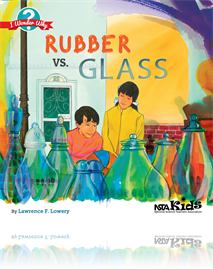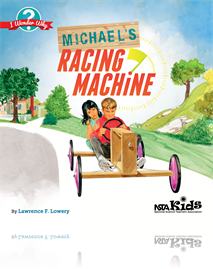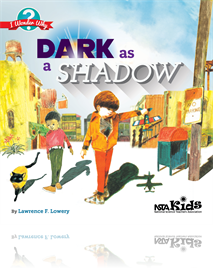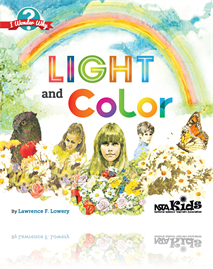All Resources
eBook
Using Physical Science Gadgets and Gizmos, Grades 3-5: Phenomenon-Based Learning (e-book)
The authors say there are three good reasons to buy this book: 1. To improve your students’ thinking skills and problem-solving abilities. 2. To get easy-to-perform experiments that engage students in the topic. 3. To make your physics lessons w...
eBook
Rubber vs. Glass: I Wonder Why (e-book)
A friendly debate leads twins Bill and Mary to compare rubber balls, rafts, and gloves with glass marbles, greenhouses, and jars, objects that at first seem very different. A field trip teaches them that both rubber and glass can bend, bounce, stretc...
NSTA Kids
Michael's Racing Machine: I Wonder Why
Celebrate imagination! This NSTA Kids book has been selected for the Children’s Book Council #ImaginationCelebration Showcase! Full book list: Imagination Celebration Showcase...
eBook
Michael's Racing Machine: I Wonder Why (e-book)
While building a soapbox racing car, a pair of friends provide an easy-to-understand lesson in how simple machines are all around us, making our work more efficient. Michael and Luci show readers that a broom is a lever, nails are wedges, and a screw...
NSTA Kids
Children's Choices Winner, Children's Book Council and International Literacy Association!...
eBook
Dark as a Shadow: I Wonder Why (e-book)
Time for shadow play! After reading about how light and objects interact to create shadows, young children won’t be able to resist twisting, wiggling, bending, and shaking to see the phenomenon for themselves. To add to the enjoyment, Dark as a Sha...
eBook
Light and Color: I Wonder Why (e-book)
This book unfolds as a series of observations about light, including where it comes from, how it bounces off of people and objects, and what we mean when we say the colors of a rainbow are the colors in light. Throughout the text, informal experiment...
NSTA Press Book
Dark as a Shadow: I Wonder Why
Time for shadow play! After reading about how light and objects interact to create shadows, young children won’t be able to resist twisting, wiggling, bending, and shaking to see the phenomenon for themselves. To add to the enjoyment, Dark as a Sha...
By Lawrence F. Lowery







